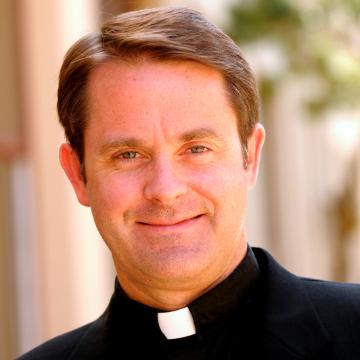
Religion and Politics: The Next Round
A recent article by Laurie Goodstein in the Sunday edition of the New York Times (June 10, 2017) observes a new turn in the storied history of religion and politics in the United States. The title tells the story: “Religious Liberals Sat Out of Politics for 40 Years. Now they Want in the Game.” Then the subtitle explains: “Faith leaders whose politics fall to the left of center are getting more involved in politics to fight against President Trump’s policies.”
Although I’m not sure the religious left has been as apolitical as the title suggests, the article does show important differences in the way the two major American political parties connect with religious groups. According to Rev. Jim Wallis of Sojourners, Republicans have used religion strategically, while Democrats have had a “habitually allergic and negative response to religion per se.” He argues that most religious leaders feel “dissed” by the left, which is “controlled by a lot of secular fundamentalists.”
Wallis’ claim is a striking one on account of his phrase “secular fundamentalists.” These are words we don’t often see together, but it’s worth considering what they might mean.
“Religious fundamentalism” originally meant practice based on a literal interpretation of scripture, whether in Christianity or Islam. Over time, it has come to suggest strict and blind adherence to certain beliefs of a religious group. What seems to be missing in fundamentalism is an approach to religious authority that is more critical and less automatic, as well as a humble searching that begins from the admission that one doesn’t know a lot. Ancient theologians would call this an attitude of docta ignorantia, a “learned ignorance.” It is what tempers a habit of reactivity to what may seem threatening and a fear that life is complicated. Moreover, docta ignorantia makes wisdom possible . . . slow, studied, humble wisdom that is always committed to the process of learning through experience and continued reflection.
What may Wallis mean, then, by “secular fundamentalism”? I suspect he is referring to a belief that any reference to religious motivations should stay out of the public square. The belief may be generated by a simplistic understanding of the First Amendment, a fear that all religion is inherently right wing (and all that includes) or a prejudice that religion is just, well, what my nieces and nephews might call weird and creepy. Or that it may make claims on me that will complicate my life. And so culturally we can develop an allergic reaction.
I have mixed feelings about the Times report of the religious left itching to be back in the political game.
On one hand, I am delighted with the prospect that religion, in all its diversity, will raise its voice in the public sphere. In the Age of Trump, religious communities especially have a crucial role in fighting for social justice, especially on behalf of those who are most vulnerable. We should make our voices known and act out of a deep sense of what God requires of us.
On the other hand, I also confess certain worry that, in practice, religion can simply be a cipher for politics. In its own way, the left can slide into fundamentalism as easily as the right. Moreover, I have been around long enough now to know that what even religious people call “social justice” can too easily become other words for “progressive politics.”
Let me be clear that I am not arguing against progressive or conservative politics. I am saying that religious people are all too susceptible to the polarizations we feel as a society. If religion is going to help matters, it will need to enter the public sphere but not assimilate to it. That will require maintaining a sense of independence in its own processes, ways of thought, study of sacred texts, and habits of prayer.
For the next round of politics and religion, we do not need more fundamentalists of any stripe—whether religious fundamentalists (from the right or left) or secular fundamentalists. Rather, we need to move forward with a humility that is ever open to learn.

